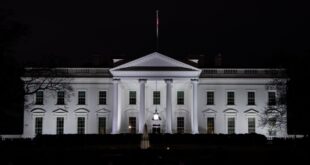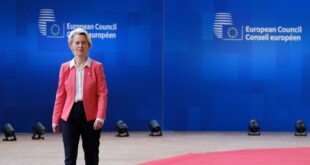The Kurdistan region of Iraq is an island of stability in a sea of regional conflict. Since the 1990s, the Kurds have worked to establish a free and a functioning society. It is a model for successful political engagement by the United States in the Middle East, as Erbil has been a reliable U.S. partner in fighting terrorism, as well as in modeling good governance in the region. In spite of the billions of dollars spent in Iraq, U.S. state-building efforts there failed, but they have been very successful in Kurdistan—and much less expensive.
To tip the scales against regional hegemonic powers , which thrive on proxy wars and instability, and groups like the Islamic State of Iraq and al-Sham (ISIS), the United States should empower and help smaller, non-expansionist entities in the Middle East, including the Kurdistan region.
Against all odds, the Kurdish peshmerga forces have helped repel ISIS from the suburbs of Mosul, Kirkuk, and Sinjar. For a decade, Baghdad prevented the peshmerga from acquiring weapons or training. But when ISIS took over one third of Iraqi territory in June 2014, the peshmerga went into action. In August 2014 the United States began airstrikes against ISIS near Erbil, but it relied on the peshmerga to do the heavy lifting on the ground. Recently, the peshmerga forces were able to secure all of Kirkuk’s strategic oil fields.
Despite their successes, the peshmerga are still underequipped. As such, the United States should arm them. The concerns that such a move would destroy Iraqi unity do not correspond with the facts on the ground. Iraq is divided into three regions (Kurdish, Shiite, and Sunni), the borders of which are clearly defined. The country’s social fabric has been torn and the populations of the three regions are distinct. For nearly a century they were forced to live in a unified country, but this system did not work. It fueled wars and fostered autocracy. Now is the time to listen to what the Kurdish, Shiite, and Sunni communities want. Each one is a majority in its respective territory, but all are minorities in Baghdad. Iraq’s bloody experiences demonstrate that these communities desire self-rule.
The United States could also help open global energy markets to Kurdish oil. Kurdistan is rich in oil and gas reserves: it has 45 billion barrels as oil in place, 12 billion barrel as recoverable reserve, and 22 trillion cubic feet of natural gas. And it has a constitutional right to export and to manage its natural resources, according to a June 2014 ruling of the Iraqi Supreme Federal Court. Oil and gas are major drivers of conflict in the Middle East, except in Kurdistan, which has already forged strategic, energy-based relationships with Turkey and Iran.
For its part, the Kurdistan Regional Government (KRG) has already adopted a transparent and legal mechanism of sending 83% of the revenue to the central government in Baghdad; it only keeps 17%, which represents the Kurdish share of the Iraqi budget. Moreover, allowing Erbil to practice its constitutional right to export oil will provide it with the proper financial means to buy weapons for the peshmerga.
Finally, the United States could help the KRG establish the Nineveh Plains as an autonomous region, administered by Erbil, for Christians, Yezidis, and other religious minorities. The Kurds are committed to maintaining the religious and ethnic diversity of the Middle East. In fact, according to the International Organization for Migration, the KRG hosts nearly over one million internally displaced Iraqis, many of whom are Christian, Yezidi, Shabak, and Turkmen, in addition to Sunni. It is important to keep the Nineveh Plains as a refuge for minorities.
The United States has tried policing the Middle East on its own, but without much success. It stood behind Iran’s Shah and ended up with the rise of political Islam. It backed the Iraqi dictator Saddam Hussein and ended up with three wars (in addition to massive atrocities against the Kurds). It even tried a policy of dual containment against both Iraq and Iran, yet in the end empowered the Iranian theocracy and brought about a failed state in Iraq. When the United States has a partner that does not believe in inclusive and good governance, the results are always fatal.
As an island of stability, the KRG has an interest in aligning its national interests and foreign policies with the United States. In comparison to the rest of the Middle East, the KRG thrives on a progressive vision, a viable political process, an open and market-based economy, and peaceful coexistence. And despite its modest capabilities, it has been able to weather regional strife.
The Kurdish people have their own land, language, and history. They deserve their own country, too.
Shahla Al Kli is a doctoral candidate at the Fletcher School of Law and Diplomacy at Tufts University, originally from the Kurdistan region of Iraq. She previously served as a senior advisor to the speaker of the Kurdish parliament, and a special consultant to the speaker of the Iraqi Council of Representatives.
 Geostrategic Media Political Commentary, Analysis, Security, Defense
Geostrategic Media Political Commentary, Analysis, Security, Defense





